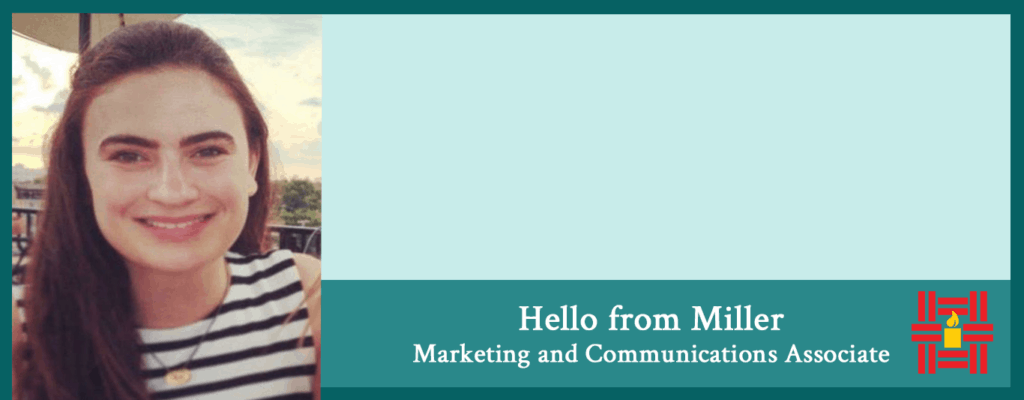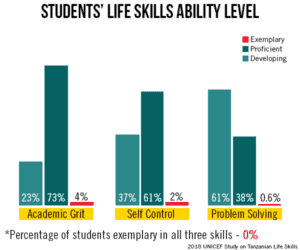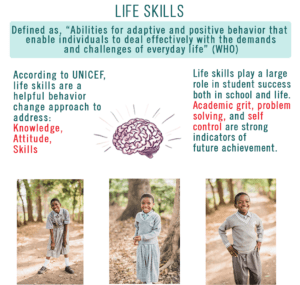
August 23, 2019
50 of our scholars have a single parent, 39 scholars have lost both parents, and only 16 scholars have both a mother and a father. The Foundation For Tomorrow’s scholars are selected through a formal identification and verification process, ensuring that the most needy and vulnerable children are accepted into our program. Many students that we work with have experienced extreme hardship, myriad and diverse challenges, and significant adversity throughout their lives. The challenges that they have faced, and continue to face, influence their learning dispositions. Education research notes that diverse characteristics as learners, and what one brings to a particular learning situation, influence learner ability and experience. According to education researcher Ruth Deakin-Crick, learning dispositions are both a product of an individual’s socio-cultural background as well as an enduring feature of personality. Numerous strategies drive learning and are contingent on personal experiences, background, and the general well-being of the learner. However, learning styles are not fixed, they are dynamic and nimble. Therefore, TFFT believes that understanding a learner’s background and characteristics is essential for improving and enhancing learner experience.
 The well-being of our scholars and their academic successes are not mutually exclusive, which is why TFFT embraces a Whole Child approach. Our student-centered programs are effective and impactful because we ensure that they focus on the value and promise of each student, each teacher, and each community we work with. As an organization that believes that education is the best way to address vulnerability, we are committed to improving the barriers that hinder learner experience. While learning outcomes are important, TFFT believes that it is equally as important to consider the ways in which broader contexts-in our case the sphere of vulnerability and the conditions that compromise learning achievement in the Tanzanian setting-shape the learner.
The well-being of our scholars and their academic successes are not mutually exclusive, which is why TFFT embraces a Whole Child approach. Our student-centered programs are effective and impactful because we ensure that they focus on the value and promise of each student, each teacher, and each community we work with. As an organization that believes that education is the best way to address vulnerability, we are committed to improving the barriers that hinder learner experience. While learning outcomes are important, TFFT believes that it is equally as important to consider the ways in which broader contexts-in our case the sphere of vulnerability and the conditions that compromise learning achievement in the Tanzanian setting-shape the learner.
The TFFT team, specifically Robin Mwanga, our Psychosocial and Health Program Coordinator, ensures our scholars’ psychosocial and health needs are fulfilled through provision of medical insurance coverage, as well as counseling and emotional support. For example, one of our students Rachael has complications with one of her ears. She had corrective surgery in December with an ENT surgeon, but unfortunately the ear has not healed as the surgeon anticipated. Now, Robin is seeking a second opinion from Aga Khan Hospital in Nairobi, Kenya. Robin’s commitment to seeking the best health care for Rachael speaks volumes about our commitment to our Whole Child approach in practice.
 Social and emotional skills include a broad set of competencies that play a vital role in shaping student achievement. Throughout their years in our scholarship program, TFFT provides our scholar’s with activities targeted at improving their resilience and life skills. A 2018 UNICEF study revealed that Tanzanian youth perform poorly on life skills assessments. Our life skills programming seeks to change that. We enables our scholars to learn essential skills they need to better adapt to and handle life-challenges, helping them to maximize their potential to succeed in life.
Social and emotional skills include a broad set of competencies that play a vital role in shaping student achievement. Throughout their years in our scholarship program, TFFT provides our scholar’s with activities targeted at improving their resilience and life skills. A 2018 UNICEF study revealed that Tanzanian youth perform poorly on life skills assessments. Our life skills programming seeks to change that. We enables our scholars to learn essential skills they need to better adapt to and handle life-challenges, helping them to maximize their potential to succeed in life.
 According to Angela Duckworth, an American academic and psychologist, qualities like self-control, resilience and grit are sourced from an individual’s environment and influence how children view themselves and their capacity to aspire to achieve educationally. Resilience is understood as a navigational process of response and adaptation, that develops over time and through relationships. Resilience provides the conditions and support for aspiration to thrive. Because learning traits and dispositions are influenced dramatically by background experience, resilience is a trait that can be fostered within our scholars throughout the 12 years that they are in our scholarship program.
According to Angela Duckworth, an American academic and psychologist, qualities like self-control, resilience and grit are sourced from an individual’s environment and influence how children view themselves and their capacity to aspire to achieve educationally. Resilience is understood as a navigational process of response and adaptation, that develops over time and through relationships. Resilience provides the conditions and support for aspiration to thrive. Because learning traits and dispositions are influenced dramatically by background experience, resilience is a trait that can be fostered within our scholars throughout the 12 years that they are in our scholarship program.
Researcher Anne Masten has opened new ground by exploring how individuals overcome the odds, and successfully navigate adversity, serving as active agents in changing their situations. Support networks, community involvement, and positive relationships are understood as conducive to growth and development in the face of adversity. Our scholarship program creates these conditions and our thoughtful Whole Child approach creates a learning setting that helps students develop the qualities and characteristics that are necessary to succeed over time. No two of our scholars are the same, and they all come to the classroom with a variety of challenges that might influence their ability to learn. We provide the supportive framework that ensures our scholars gain the skills and navigational tools necessary to optimize learning opportunities. As is well-documented, individuals have the agency to respond in the face of adversity and our Whole Child approach fosters growth and development in spite of formidable adversity.